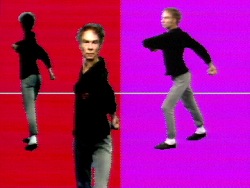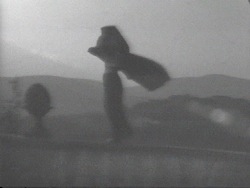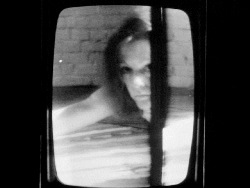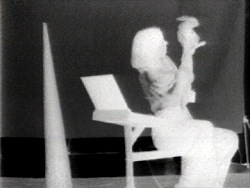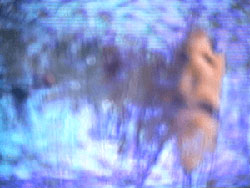Search Results
Search Results
Title Results
Your search returned 805 Titles
Merce by Merce by Paik
Nam June Paik. In collaboration with Charles Atlas, Merce Cunningham, and Shigeko Kubota
1978, 28:45 min, color, sound
Merce by Merce by Paik is a two-part tribute to groundbreaking postmodern choreographer Merce Cunningham and avant-garde master Marcel Duchamp. Blue Studio: Five Segments is a stunning work of videodance by Merce Cunningham and artist Charles Atlas, who was then filmmaker-in-residence with the Cunningham Dance Company. In Merce and Marcel, Nam June Paik and Shigeko Kubota create a densely textured video collage that links the two visionary artists.
Merce by Merce by Paik Part One: Blue Studio: Five Segments
Merce Cunningham and Charles Atlas
1975-76, 15:38 min, color, sound
Blue Studio: Five Segments is a groundbreaking work of videodance by postmodern master Merce Cunningham and his then filmmaker-in-residence, Charles Atlas. In a series of short pieces choreographed and performed specifically for video space, Cunningham is multiplied, overlaid and transported from the studio to a series of unexpected landscapes. Cunningham's gestural dance is manipulated to the accompaniment of a disjunctive audio collage that includes the voices of John Cage and Jasper Johns.
Merce by Merce by Paik Part Two: Merce and Marcel
Nam June Paik and Shigeko Kubota
1978, 13:05 min, color, sound
In Merce and Marcel, Paik and Shigeko Kubota create a densely textured, transcultural collage that pays tribute to the eponymous artists by addressing the relationship of art and life. Paik and Kubota link art to the movements and gestures of the everyday.
Produced at the seminal video art studio Art/Tapes/22 in Florence, Merlo is an early piece in which Jonas performs alone in several dramatic outdoor locations: a rocky gorge, a wind-tossed river, a balcony looking out over a valley. Cloaked in a dark, hooded robe, Jonas employs a long paper cone as a megaphone, singing melodies and keening, animal-like, into the landscape. The cone figure and the specific melodies that Jonas uses are recurring motifs in her performance vocabulary.
Here, "another regular day" in the life of Mike reveals a world completely envisioned and experienced through the images and slogans of the media. Mike enacts his daily routine — waking, shaving, dressing — as if he were in one advertisement after another. His language is the empty jargon of ad...
Drawing from music critic Philip Sherburne’s writings and British cultural theorist Paul Gilroy’s influential study The Black Atlantic: Modernity and Double Consciousness (1994), Mikrohaus, or the black atlantic? considers the socio-political context undergirding the roots of minimal techno in...
Writes Jonas: "For Mirage I made a film of drawing, again and again, images on a blackboard, and then erasing them. Reading the essays collected in Spiritual Disciplines, I got another idea to use drawings, also in Mirage, which I called 'Endless Drawings' after those described in the Melukean...
Mirage 2, which Jonas edited at EAI in 2000 for simultaneous projection with her 1976 film Mirage, is a montage composed of video dating from the era of the original film and performance. A kaleidoscopic and hypnotic piece, it revisits footage recorded in the 1970s: fragments of off-air...
